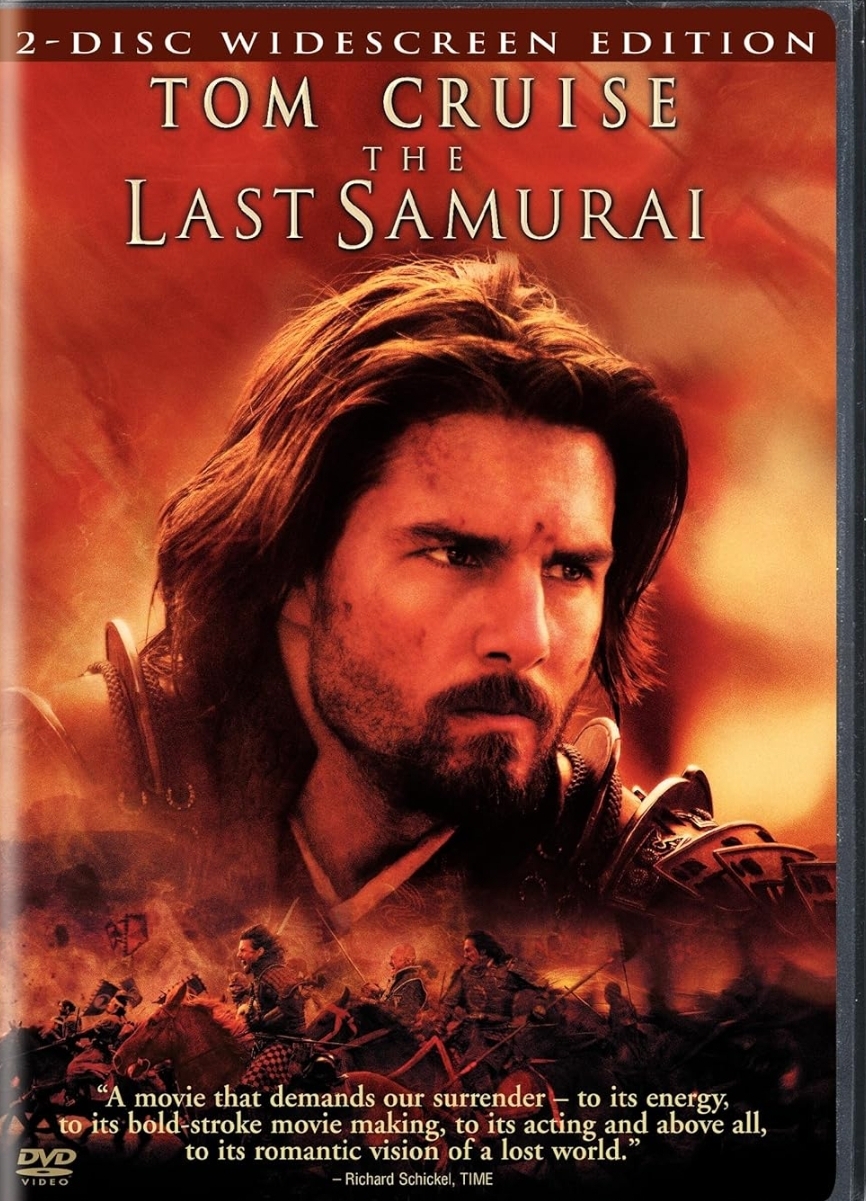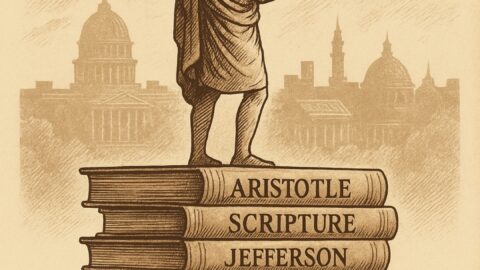The Last Samurai (2003) – A Hero’s Journey of Redemption and Awakening
The Last Samurai, directed by Edward Zwick and starring Tom Cruise as Captain Nathan Algren, is a powerful exploration of a man’s spiritual awakening and redemption through the Hero’s Journey framework. The film examines themes of guilt, honor, cultural collision, and rebirth, as Algren transitions from a disillusioned and broken soldier to a man of virtue, honor, and purpose.
The Call to Adventure: A Man Broken by Guilt
Captain Nathan Algren, a decorated veteran of the American Indian Wars, is a man tormented by the atrocities he committed against Native American tribes under orders from his superiors. He is haunted by vivid memories of massacres, which have left him spiritually apathetic, drowning his guilt in alcohol.
- The Ordinary World: Algren begins the story as a hollow shell of a man, surviving rather than living, reduced to performing in promotional demonstrations of military firearms for profit.
- The Call to Adventure: Algren is approached by Omura, a Japanese industrialist, and Colonel Bagley, an old superior he deeply despises. They offer him a lucrative contract to train Japan’s new conscript army and suppress a rebellion led by the Samurai, seen as obstacles to Japan’s modernization and railroad expansion.
- Refusal of the Call: Algren accepts the offer not out of conviction, but out of financial desperation and the need to escape his haunted past.
Crossing the Threshold: Captured by the Samurai
During an ill-prepared battle, Algren fights bravely but is ultimately captured by Katsumoto, the leader of the Samurai rebellion. Instead of being executed, Algren is taken to Katsumoto’s remote mountain village.
- Entering the Special World: In captivity, Algren enters a world governed by honor, discipline, and spiritual purpose—a stark contrast to the mechanized brutality of modern warfare he is accustomed to.
- First Transformation Seeds: Surrounded by the Samurai, Algren begins to experience their culture—their connection to nature, their code of Bushido (Way of the Warrior), and their deep respect for life and death.
Tests, Allies, and Enemies: Spiritual Awakening
- Mentor Figure – Katsumoto: Katsumoto becomes Algren’s guide, challenging his cynicism and teaching him about duty, honor, and sacrifice.
- Allies – The Samurai Community: Algren finds allies in Katsumoto’s family, particularly in Taka (Katsumoto’s sister, who tends to Algren’s wounds despite her hatred for him) and Ujio (a stern Samurai who begins to respect Algren’s resilience).
- Trials – Embracing Samurai Life: Algren learns the way of the Samurai—swordsmanship, meditation, and discipline. Through these lessons, he begins to shed his guilt, embrace humility, and find moments of spiritual clarity and peace.
- Enemy – Omura and the Japanese Government: Algren realizes that the real enemy isn’t Katsumoto or the Samurai, but the industrial greed and corrupt government policies that are driving Japan’s transformation at the expense of its soul.
The Abyss: Facing the Depths of His Soul
In one pivotal scene, Algren confesses to Katsumoto his deep guilt over the atrocities he committed against Native Americans. Katsumoto responds with wisdom and compassion, offering Algren a chance at redemption:
- “What does it mean to be Samurai? To devote yourself utterly to a set of moral principles, to live and die with honor.”
This moment marks Algren’s spiritual rebirth. He realizes that his past sins do not have to define his future and that redemption is still possible if he lives with honor and integrity.
- Moment of Clarity: Algren chooses to stand with the Samurai, rejecting his role as a pawn in Omura’s scheme.
Transformation: Rebirth into Honor and Purpose
Algren fully embraces the Samurai way of life, donning their armor and joining them in their final stand against the imperial Japanese army, now fully mechanized with Western firearms and cannons.
- Symbol of Transformation: The red Samurai armor Algren wears in the final battle signifies his complete transformation—a man reborn through courage, loyalty, and selflessness.
- Facing Mortality with Honor: Knowing the Samurai cannot win, Algren fights not for victory, but for honor, legacy, and the preservation of a noble way of life.
The Final Battle: The Ultimate Sacrifice
The Samurai launch a courageous but doomed final charge against the imperial forces. The juxtaposition of ancient tradition against modern machinery highlights the clash of values between honor-driven ideals and soulless progress.
- Katsumoto’s Death: In the aftermath of the battle, Katsumoto chooses to die by seppuku (ritual suicide) rather than surrender his honor. Algren assists him, symbolizing his complete immersion into the Samurai code.
- Legacy of the Samurai: Katsumoto dies, but their legacy endures through Algren.
The Return with the Elixir: Algren’s Redemption
After the battle, Algren returns to the emperor and refuses to bow to Omura, exposing his greed and corruption. In a powerful moment, the young emperor realizes the true cost of modernization and orders a halt to the industrialists’ unchecked power.
- Algren’s Final Redemption: Algren chooses not to return to the West but instead goes back to the Samurai village, where he finds peace, purpose, and perhaps love with Taka.
- Spiritual Rebirth: No longer haunted by guilt or burdened by apathy, Algren has become a man of honor and integrity, truly alive for the first time in years.
Themes and Lessons from Algren’s Journey
- Redemption Through Honor: Algren’s path shows that no matter how far one has fallen, redemption is always possible through living a life of integrity and purpose.
- Clash of Values: The film explores the destructive consequences of unchecked materialism and industrial progress at the expense of cultural heritage and human dignity.
- Spiritual Awakening: Algren’s journey reflects the human desire for meaning and connection in a world increasingly devoid of spirituality.
- Legacy of Virtue: The Samurai code serves as a timeless reminder of the power of honor, sacrifice, and loyalty.
Conclusion: The Hero Reborn
In The Last Samurai, Nathan Algren begins as a broken man—a slave to guilt, alcohol, and a system that values power over humanity. Through his captivity, he undergoes a profound spiritual awakening and embraces the virtues of the Samurai.
His journey is a testament to the timeless truth that a life of honor, integrity, and courage is the only path to true redemption. Instead of being a cog in the machinery of a corrupt state, Algren becomes a free man, guided by principle and deeply alive.







